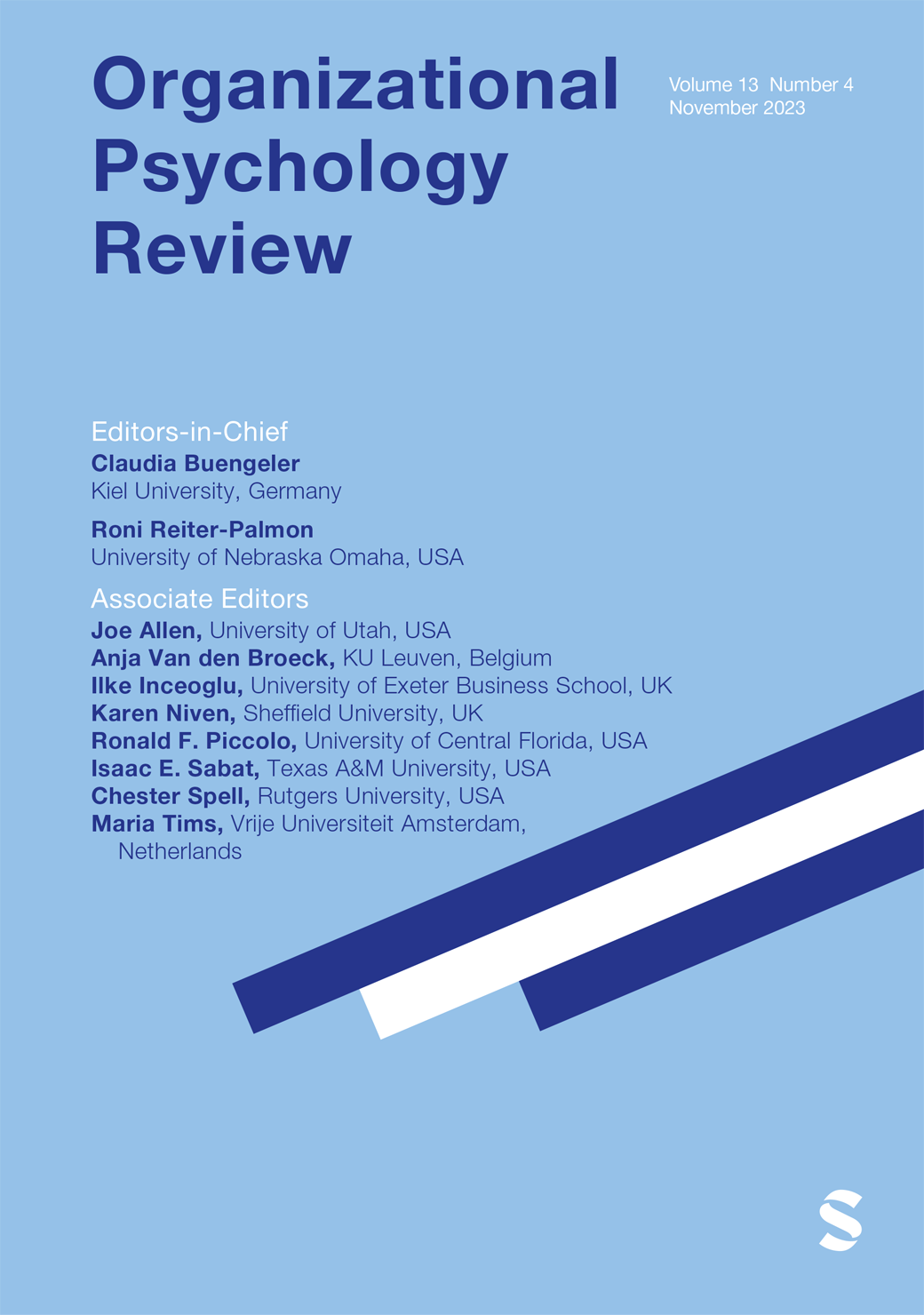社会角色是如何塑造人际关系的
IF 7.1
1区 心理学
Q2 MANAGEMENT
引用次数: 0
摘要
在工作场所,个人经常试图影响他人的情感状态。这种人际影响调节(IAR)发生在以行动者和目标之间的不同角色和关系为特征的社会环境中。然而,目前尚不清楚IAR过程和结果是否以及如何在不同环境下有所不同,因为相关研究是在不同研究传统的独立组织文献中发展起来的,迄今尚未进行比较或整合。此外,尽管IAR具有社会性质,但在以往的研究中很少考虑IAR行为人与IAR目标之间的关系类型。在这里,我们提出了一个综合框架,以确定工作中的社会角色为什么以及如何影响组织中三种核心行为者-目标配置的IAR的动机、策略和情感结果。具体来说,我们理论化了内部-垂直、内部-水平和外部社会角色配置如何影响IAR。我们提供了关于IAR在组织中的性质和影响的综合见解,并为IAR的未来研究制定了全面的议程。本文章由计算机程序翻译,如有差异,请以英文原文为准。
How social roles shape interpersonal affect regulation at work
Individuals often attempt to influence the affective states of others in the workplace. Such interpersonal affect regulation (IAR) occurs across social settings that are characterized by distinct roles and relationships between actors and targets. However, it is unclear whether and how IAR processes and outcomes differ across settings as pertinent research has developed in separate organizational literatures with different research traditions that have thus far not been compared or integrated. In addition, despite the social nature of IAR, the types of relationships between the actor engaging in IAR and the target of IAR have rarely been considered in prior research. Here, we present an integrative framework to establish why and how social roles at work shape motivation, strategies, and affective outcomes of IAR across three core actor-target configurations in organizations. Specifically, we theorize how internal-vertical, internal-horizontal, and external social role configurations influence IAR. We provide integrative insights into the nature and implications of IAR in organizations and generate a comprehensive agenda for future research on IAR.
求助全文
通过发布文献求助,成功后即可免费获取论文全文。
去求助
来源期刊

Organizational Psychology Review
Multiple-
CiteScore
10.00
自引率
1.60%
发文量
25
期刊介绍:
Organizational Psychology Review is a quarterly, peer-reviewed scholarly journal published by SAGE in partnership with the European Association of Work and Organizational Psychology. Organizational Psychology Review’s unique aim is to publish original conceptual work and meta-analyses in the field of organizational psychology (broadly defined to include applied psychology, industrial psychology, occupational psychology, organizational behavior, personnel psychology, and work psychology).Articles accepted for publication in Organizational Psychology Review will have the potential to have a major impact on research and practice in organizational psychology. They will offer analyses worth citing, worth following up on in primary research, and worth considering as a basis for applied managerial practice. As such, these should be contributions that move beyond straight forward reviews of the existing literature by developing new theory and insights. At the same time, however, they should be well-grounded in the state of the art and the empirical knowledge base, providing a good mix of a firm empirical and theoretical basis and exciting new ideas.
 求助内容:
求助内容: 应助结果提醒方式:
应助结果提醒方式:


